Singapore companies continue to find opportunities in the US: EnterpriseSG
The booming semiconductor hub in Arizona and the ease of doing business in Mississippi are key draws for global firms to choose the states.
Sign up now: Get ST's newsletters delivered to your inbox
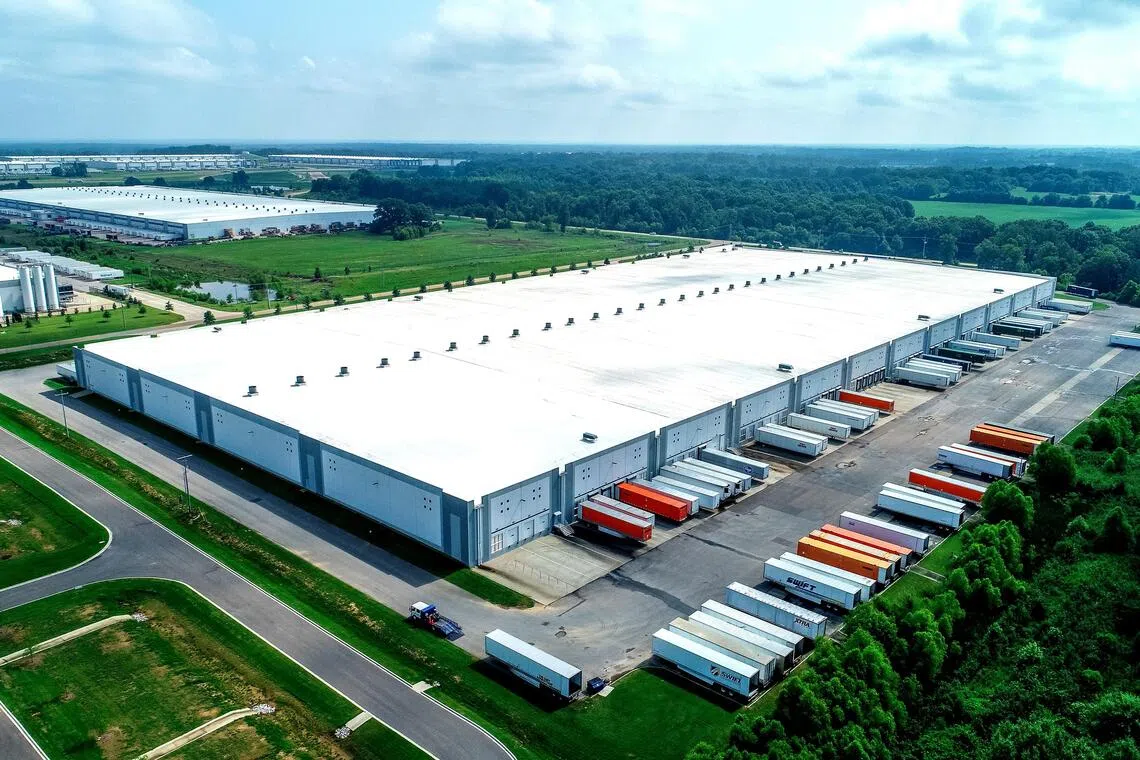
Mapletree's facility in East Wingo Road, Mississippi.
PHOTO: MAPLETREE
Follow topic:
PHOENIX, Arizona – Arizona might be a dry desert place, with cacti lining the highway and rocky landscapes on the horizon; but for Singapore companies that have a presence there, it is a place that offers vast tech opportunities.
Semiconductor company BHS Kinetic has 50 years of experience in Singapore, and in 2022, chose to expand to Arizona. It is now based out of SkySong, the Arizona State University Scottsdale Innovation Centre, which is built to help start-ups launch and grow.
“The United States is investing heavily in semiconductor manufacturing, and Arizona has become one of the most important hubs. Being close to customers matters, and Arizona provides the right ecosystem and talent pool,” said BHS North America general manager Dave Tan. In the US, BHS’ work focuses on installation and de-installation of advanced semiconductor equipment.
Arizona is the company’s base in the US, and it has also carried out projects in areas like Texas, Oregon, New York and Idaho, with additional work extending to states such as Utah, Virginia, Vermont and Minnesota.
The Straits Times visited Arizona and Mississippi as part of an international reporting tour organised by the Foreign Press Centre of the US State Department.
Enterprise Singapore (EnterpriseSG) said the US offers Singapore companies significant scale and opportunities as it is the world’s largest economy, representing more than a quarter of global gross domestic product.
“Demand continues to be strong in traditional sectors where Singapore companies have established strengths, including logistics, real estate, professional services, and consumer and lifestyle,” noted EnterpriseSG’s director for the Americas, Ms Lim Seow Hui.
She said Singapore remains the third-largest Asian investor in the US, with more than 250 Singapore companies operating across 45 states.
Singapore firms can also tap growing areas in the US, such as the increasing demand for advanced manufacturing solutions and healthcare innovation, she said. Venture capital, research institutions and innovation hubs with deep talent pools also make the US a global hot spot for frontier technologies like artificial intelligence (AI), biotechnology and advanced computing.
“Singapore companies bring expertise in advanced technologies, including the internet of things, big data, AI and additive manufacturing, that can support the growth of the US’ domestic manufacturing ecosystem,” Ms Lim said.
Tech firms and start-ups, like BHS, can also use the US’ innovation networks to co-develop and test solutions for global deployment.
“For instance, Singapore biotech companies can tap our partnership with Mayo Clinic to access the rich biomedical research capabilities within Arizona’s Biomedical Corridor to advance global health outcomes,” she added.
Another tech company in Arizona flying the Singapore flag is Sunningdale Tech, a precision plastics engineering firm that produces plastic components for multinational customers in the automotive, consumer and medical industries.
It expanded into the US in 2020 to grow its manufacturing footprint in the world’s largest medical device market.
Since its entry into Arizona, it has doubled the manufacturing capacity of its plant there with a 25,000 sq ft new wing. It has also earmarked space for a possible third site next to its existing facilities as demand from customers continues to gain traction.
Its chief executive officer, Mr Khoo Boo Hor, said: “Having strengthened our presence in Arizona, we remain in growth mode and continue to be keen on expanding our footprint in the US organically and through acquisitions.
“Our overarching strategy for the US region is to accelerate the growth of our medical segment, where we see clear demand. The US today represents the world’s largest market for medical devices and we are actively pursuing new business opportunities with multinational medical customers.”
Real estate developer Mapletree has a presence in both Arizona and Mississippi. It is also one of the 10 largest owners of logistics real estate in the US, managing more than 66 million sq ft of warehouses in the nation. It first entered the US in 2014.
It has 11 properties in Arizona, including eight warehouses and logistics assets and three data centres. In Mississippi, Mapletree has eight warehouses and logistics assets.
Mapletree US chief executive Richard Prokup said: “Mapletree expanded into the US to capitalise on its logistics investment landscape, driven by onshoring, resilient supply chains and robust vendor networks.”
He noted that the company has seen strong performance at its warehouse properties in Phoenix, and Northern Mississippi in the Memphis Metropolitan area.
“Phoenix is experiencing rapid population growth and offers excellent highway connectivity, as well as proximity to West Coast ports,” he said.
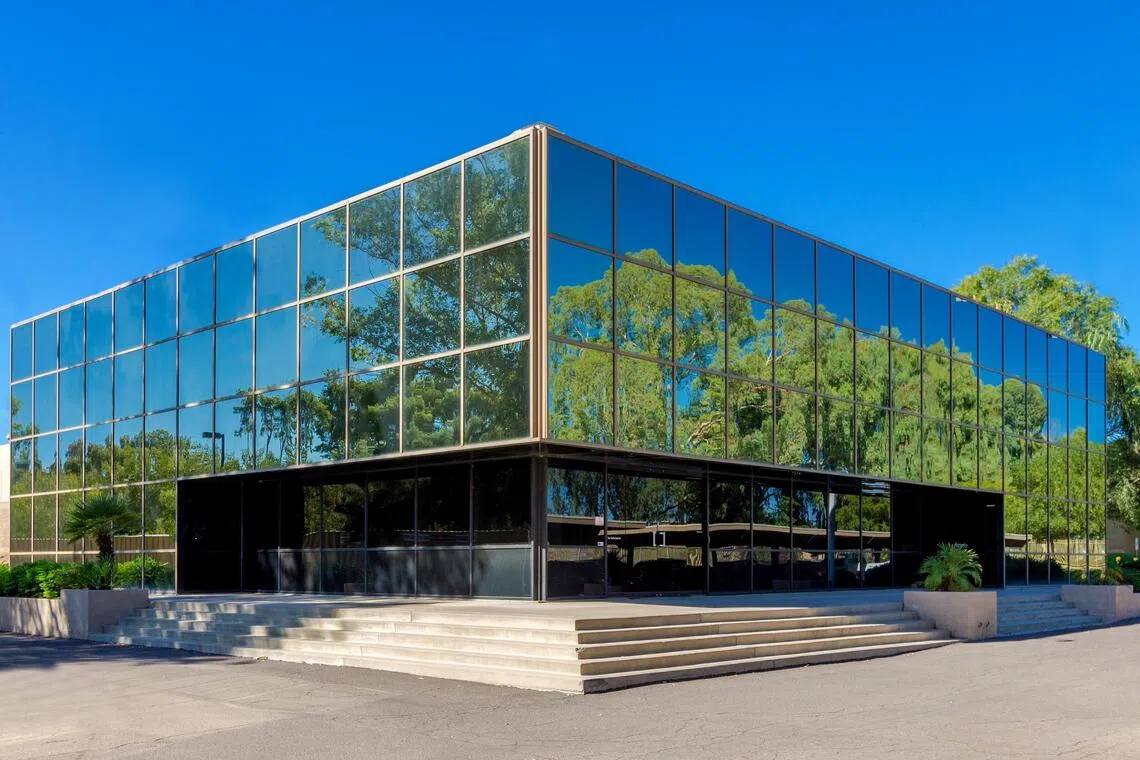
Mapletree's facility on West Broadway Road, Tempe, Arizona. It has 11 properties in Arizona, including eight warehouses and logistics assets and three data centres.
PHOTO: MAPLETREE
Northern Mississippi is another strong logistics market, he added.
“With FedEx’s headquarters in close proximity, the region offers exceptional distribution capabilities and access to north-east manufacturing corridors.”
But EnterpriseSG also noted that the business landscape in the US has become more complex, with a less predictable regulatory environment and changing compliance requirements.
“Companies need to be agile in their pricing strategies and financial planning to account for potentially higher operational costs,” Ms Lim said. “For new entrants, determining the right business structure that balances such compliance and risk exposure as well as its operational goals has become ever more critical.”
But she added that the firms that can navigate the hurdles stand to unlock substantial long-term opportunities in the market. This is especially as the US focuses on reshoring industries and American firms are making capital investments, while looking for new partners to strengthen domestic operations.
“Those with in-market presence can respond swiftly and offer cutting-edge solutions to support technological needs in the US and integrate into their expanding ecosystem,” Ms Lim said.
Semiconductor industry growing in Arizona
Arizona provides many opportunities for Singapore companies, especially on the semiconductor front.
It has been at the forefront of chip design, development and production for over 70 years, with Motorola setting up shop in the state in the 1940s, and Intel opening its first fabrication plant there in 1979.
This existing tech ecosystem and the knowledge base that allows such facilities to be built means Arizona continues to be an attractive place for semiconductor and tech companies, said Mr Thomas Maynard, the interim chief executive of the Greater Phoenix Economic Council.
“We also have the demographics to support that growth because these semiconductor companies are very much labour-intensive, both on the skilled labour side, engineers, and even PhD (researchers). So they need to have a strong university partner, which we have... anchored by Arizona State University, so that is our strength,” he added.
Mr Ian O’Grady, policy adviser for commerce to Governor Katie Hobbs, noted that Arizona is a growing state with an increasing population.
He said that every year, some 30,000 engineers are being trained, which forms the talent base for companies like Taiwanese chipmaker TSMC and electric vehicle company Lucid Motors, both of which have a presence in the state.
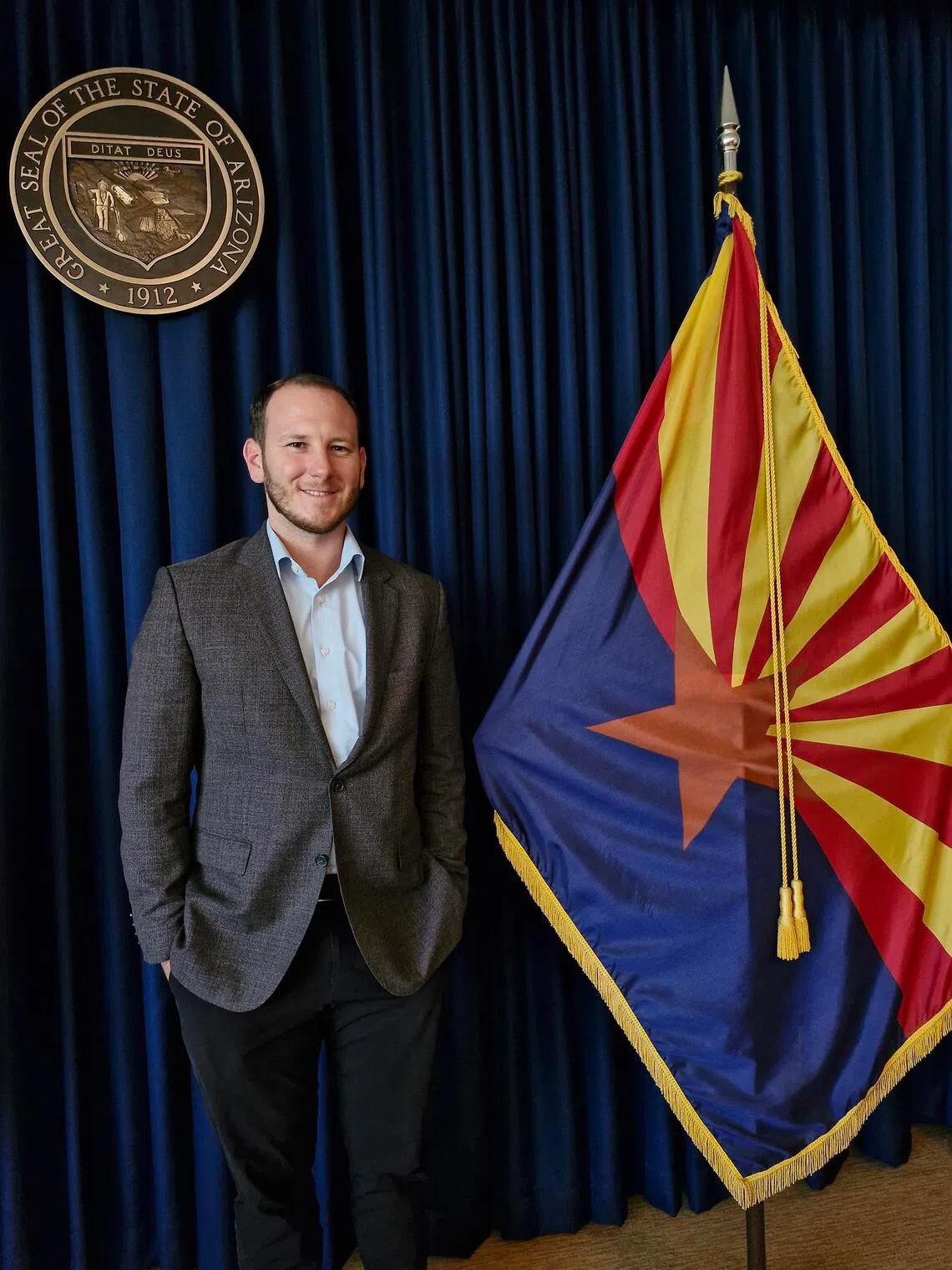
Mr Ian O’Grady noted that Arizona is a growing state with an increasing population.
ST PHOTO: SUE-ANN TAN
While he also acknowledged that there is a measure of uncertainty caused by tariff and immigration policies, overall business interest in Arizona has been stable since 2020 and the growth of foreign direct investment has also been there, largely due to TSMC.
The presence of the Taiwanese chipmaker in the state will also lend a boost to surrounding services, such as those offering cleaning services for the fabrication plant, he added.
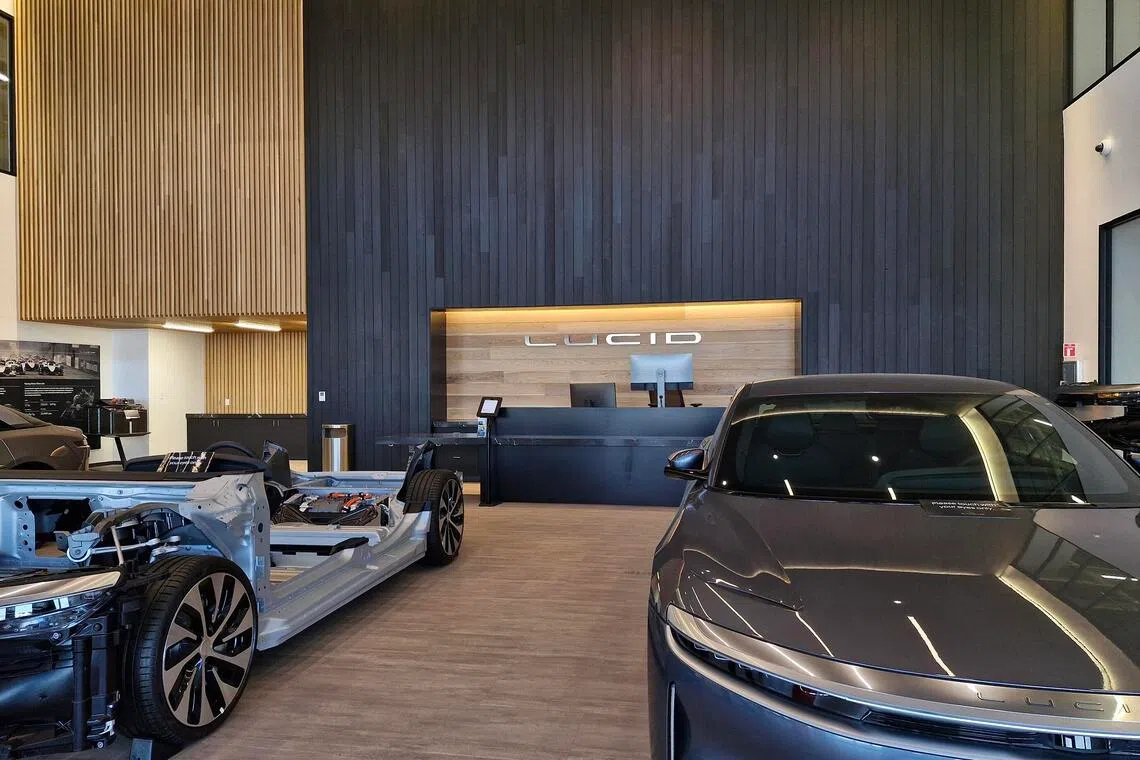
Every year, some 30,000 engineers are being trained, forming the talent base for companies like electric vehicle company Lucid Motors, which has a presence in the state.
ST PHOTO: SUE-ANN TAN
For Mr O’Grady, the challenge that remains is to “get the word out there” about Arizona so that companies know the opportunities it offers.
“I think we’re still building that brand, but I think it is already completely different from where it was 10 years ago. We’re now making Nvidia AI chips in Phoenix, we’re going to be making batteries for Tesla, so I think we’re getting there,” he said.
Ms Lim said Singapore companies have the opportunity to contribute to the semiconductor industry in Arizona.
“Singapore companies possess expertise spanning integrated circuit design, wafer fabrication, assembly and testing, making them suitable partners who can supply and fill gaps in the US semiconductor value chains in key hubs like Texas and Arizona,” she said.
She noted that it was with support from the Greater Phoenix Economic Council and EnterpriseSG that Singapore company BHS Kinetic set up office in Arizona, providing logistics, engineering and transportation services for its US semiconductor clients.
EnterpriseSG supports companies looking to the US in the form of workshops on evolving trade practices, while also giving timely information and connections for firms on project opportunities, for instance.
It also helps companies to explore collaborations with like-minded US partners so they can scale and gain credibility.
EnterpriseSG and the Singapore Business Federation recently led a delegation of firms to SelectArizona, a mission by the Arizona Commerce Authority, to explore state-specific partnership and investment opportunities in the semiconductor and healthcare space.
Global manufacturers in Mississippi
Nissan:
It might seem strange at first for a Japanese multinational automobile manufacturer to choose one of the poorest American states as the site of its first intelligent factory in the US.
But for Nissan, its Canton factory in Mississippi has been chosen to be transformed into a high-tech facility to produce electric vehicles to meet new market demands.
This is because the state has offered a business-friendly environment that is open to new ideas and has initiatives that cater to the company’s needs, its top executives said.
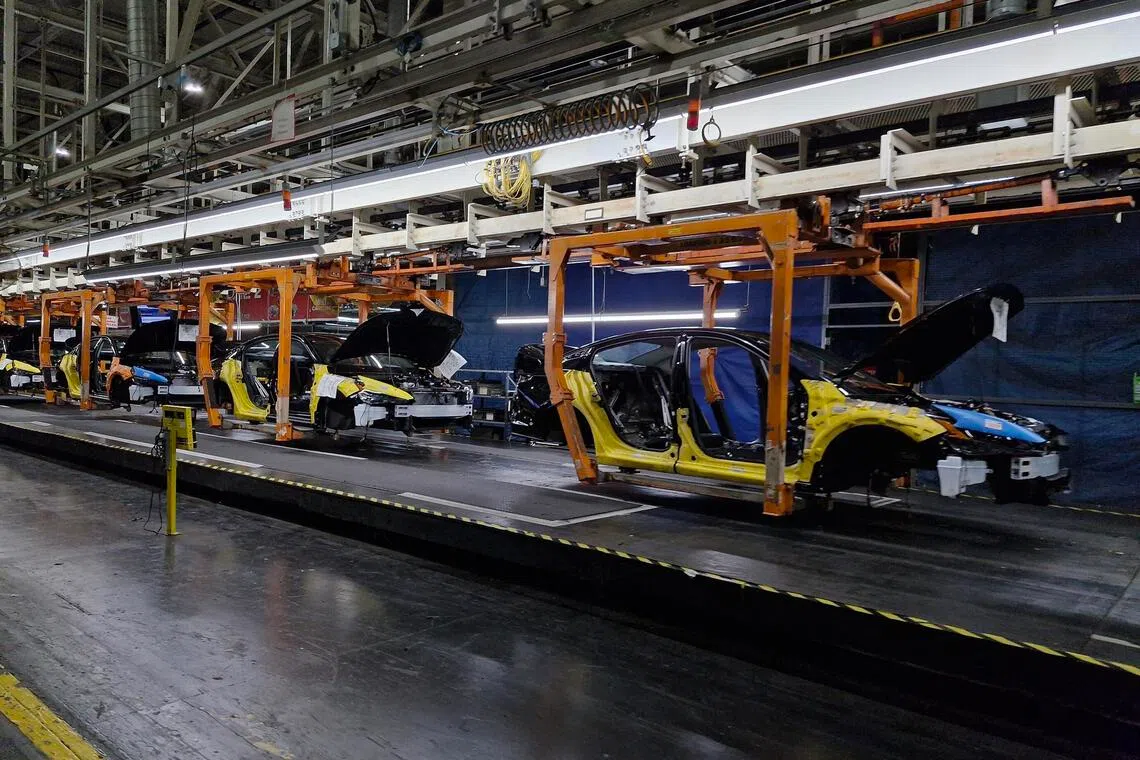
The Nissan facility in Mississippi.
ST PHOTO: SUE-ANN TAN
The Nissan plant spans 4.7 million sq ft and has produced some five million vehicles since it started operations in 2003. It is also run by a 3,700-strong staff operating a production line that has automated segments.
Mr Victor Taylor, vice president of manufacturing at the Nissan Canton Vehicle Assembly Plant, said: “The location is also very key because we’re so close to the Gulf Coast, so logistically, this is a great place.
“We have products coming from all over the world, so being close to a port and having the Mississippi River makes it good for us.”
The state also provides financial incentives to the company such as tax credits and tax exemptions, as well as supporting the training of staff, he said. Nissan has partnerships with educational institutes, such as community colleges, so students are equipped with in-demand skills before they enter the workforce.
This has become ever more important because of the announcement that the facility would be transformed to become an intelligent one.
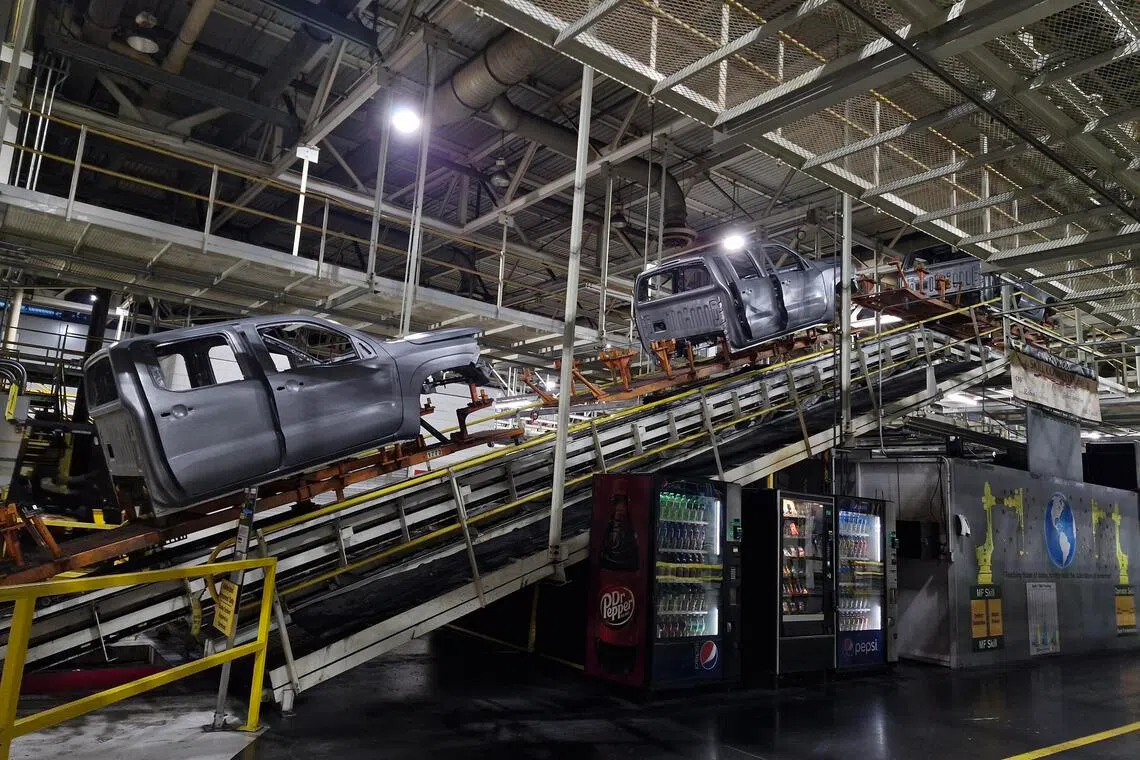
Nissan’s Canton factory in Mississippi has been chosen to be transformed into a high-tech facility to produce electric vehicles to meet new market demands.
ST PHOTO: SUE-ANN TAN
To meet future needs, the workers are trained in a virtual space using augmented reality to understand vehicles that are not physically present there.
“It’s that mindset shift from how we built cars in 2000 to the way we’re going to build in 2030 and onwards. Getting that mindset into the school curriculum (is vital) and we recognise there is a gap, which is why we are (partnering) the school system,” Mr Taylor said.
Being situated in the state is vital to be close to the large consumer market of the US, he added.
The US is one of the world’s biggest consumer market for cars. A study by Statista showed that the passenger cars market in the US is projected to reach a revenue of US$637.6 billion (S$816 billion) in 2025.
But consumer trends are also shifting. Mr Taylor noted that there is a growing demand specifically for hybrid vehicles, and Nissan will need to meet that demand, although whether it will be at the Canton facility has not been confirmed.
Siemens Energy:
Another multinational player that has set up shop in Mississippi for decades is German-headquartered Siemens Energy, which makes high-voltage circuit breakers and voltage regulators in the Richland area of the state.
In 2023, it celebrated 50 years of the facility, which hires about 540 people.
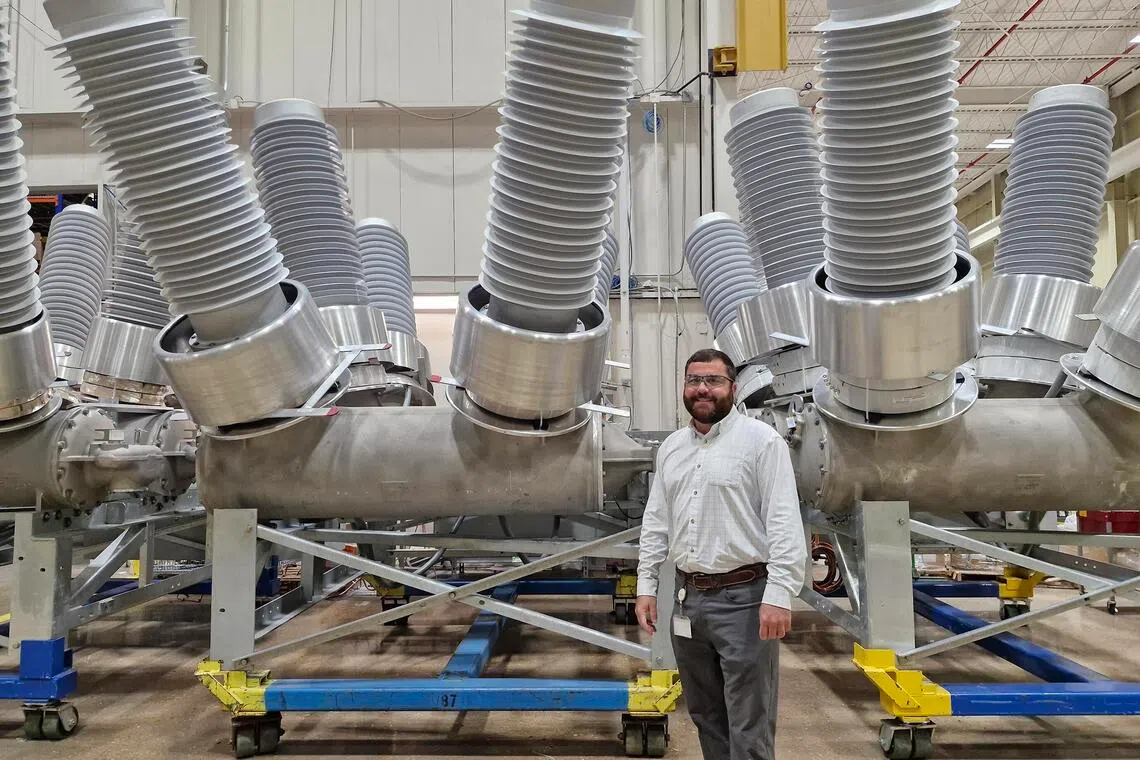
Mr Chri Wilson, environment, health and safety manager at Siemens Energy in Mississippi.
ST PHOTO: SUE-ANN TAN
Mr Muhammad Sohail, head of switchgears for the Americas at the facility, said: “The US market is one of the largest transmission markets in the world, even before the current boom right now where we are experiencing extraordinarily favourable market conditions because of energy transition.
“The demand for energy is very, very high, and by association, the transmission industries is booming.”
He also echoed the sentiments of other companies, agreeing that setting up shop in the US granted the firm access to a large consumer market.
The US is also comparatively highly electrified, in the sense that it has a higher average consumption of electricity per capita as compared to other countries, he said.
Specifically when it comes to Mississippi, the cost of living and associated costs like electricity prices are below the national average, he said, which makes it more competitive pricing-wise for the company to set up in the state.
He has also not found issues hiring skilled workers despite its relatively small manpower pool, with a population of only 3 million.
The Mississippi development authority works with companies like Siemens to train the workforce, even ensuring that on-site training at manufacturing plants takes place while hires are studying at community colleges.
But there might be challenges in hiring middle-management staff, he said, especially since a hire from another state might not want to relocate to Mississippi.
“It adds a little bit of complexity, and there are people who want to live in bigger cities. I cannot bring Houston or Dallas here. It’s just not as easy as hiring blue-collar employees or young engineers,” he noted.


